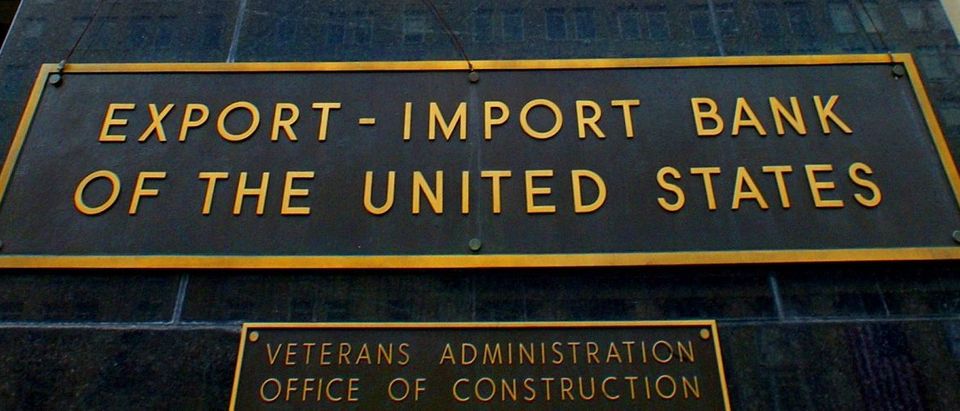When most Americans hear the name “Export-Import (Ex-Im) Bank,” an inevitable shrug develops. To the unfamiliar ear, the Bank sounds like any other Wall Street firm involved in the trade industry. But in fact, the Ex-Im Bank uses taxpayer dollars to cushion the profits of giant multinational corporations, at the expense of small-and medium-sized enterprises (SMEs) across the country. Now, as Congress mulls over whether to restore full lending power to the flawed institution, Ex-Im’s actions are increasingly under scrutiny. Although defenders of the Bank rightly point out that SMEs face a real problem in obtaining financing for their day-to-day activities, Ex-Im doesn’t provide any sort of corrective. Defenders of the status-quo fail to realize that onerous financial regulations, not a lack of federal financing, is to blame for the woes of niche businesses.
Case studies are regularly used to create a false narrative about what exactly the Bank does. In fact, listening to the pronouncements of officials at the Ex-Im Bank, you can be forgiven for thinking that pickle producers are the sole beneficiaries of the institution’s projects. Jenny Fulton, the “Chief Pickle Officer” of North Carolina-based Miss Jenny’s Pickles, is regularly invoked as an example of a small American exporter who relies on the Ex-Im Bank to facilitate her transactions abroad. But for every dollar spent plucking pickles into parcels, more money gets spent on padding the pockets of Boeing executives. Boeing, the number one beneficiary of the bank, could probably survive if the Bank was killed off entirely. But we needn’t armchair theorize. About a year and a half ago, a fierce battle over Ex-Im Bank reauthorization was resolved via a measure that restricted Bank loans to $10 million. Since then, the airplane manufacturer’s market cap has grown roughly twenty percent.
But even if the Ex-Im Bank doesn’t actually cater to small businesses, Bank defenders are right to point out the problems faced by small firms in getting the funds they need. In March of 2014, The Berne Union convened to discuss the pressing problem posed by the inability of SMEs to obtain financing. Forty economists and financial analysts concurred that, “banks remain necessary to provide working capital and export finance. But it is exactly these banks that over the last few years have become more reserved in providing that financing.” This explanation seems particularly potent in the aftermath of the Great Recession; export-import agencies have increasingly picked up the slack for the dearth in private bank funding to SMEs. As it happens, during the recent financial crises, export credit agencies (ECAs) like Ex-Im actually increased their business when banks were pulling out of trade finance.
But why have banks and financial institutions grown meek in the wake of increasing small business financing needs? Unfortunately, a perfect storm of American and international financial regulation has decreased private financiers’ appetite to spearhead the growth of mom-and-pop enterprises. Dodd-Frank in particular has straddled community banks with mountains of compliance costs. And, since community banks are usually best able to act on the “local knowledge” needed to supply financing to small businesses, the regulatory burden posed by the 2010 law is devastating for SMEs. According to a 2014 report published by the Mercatus Center, “A large majority of respondents view Dodd-Frank as more burdensome than the Bank Secrecy Act and the participating banks reported substantially increased compliance costs in the wake of new regulations…The increased regulatory burdens have led small banks to reconsider their product and service offerings…,”
If Congress really cares about making life easy for small businesses, they should promptly kill off the Ex-Im Bank. But, as advocates of government intervention rightly point out, “doing nothing” is not an option. Lawmakers should promptly move ahead with the Financial CHOICE Act, which would gut the most harmful provisions of Dodd-Frank and allow community banks to lend to SMEs again. Finally, onerous international banking requirements such as the Basel Accords should be defanged as much as possible. Crony capitalism unfairly rigs the “game” of American capitalism, while increasing the stability of the system on the whole. While much action is needed to curtail this cronyism, nixing Ex-Im and pursuing financial deregulation are two important first steps.


